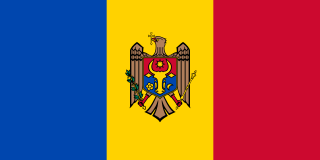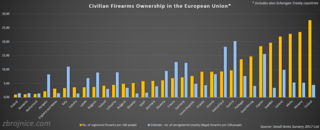
The European Economic Community (EEC) was a regional organisation created by the Treaty of Rome of 1957, aiming to foster economic integration among its member states. It was subsequently renamed the European Community (EC) upon becoming integrated into the first pillar of the newly formed European Union in 1993. In the popular language, however, the singular European Community was sometimes inaccurately used in the wider sense of the plural European Communities, in spite of the latter designation covering all the three constituent entities of the first pillar.
The mass media in Belarus consists of TV, radio, newspapers, magazines, cinema, and Internet-based websites/portals. The media is monopolized by the government, which owns all TV channels, most of the radio and print media. Broadcasting is mostly in Russian, and Russian media are widely present. After 2020, all independent media were pushed out of the country. The Law on Mass Media has been repeatedly amended and tightened, making it virtually impossible for independent journalists and publications to operate. European, Ukrainian and news websites were blocked in Belarus. The Constitution of Belarus guarantees freedom of speech, but this is contradicted in practice by repressive and restrictive laws. Arbitrary detention, arrests, and harassment of journalists are frequent in Belarus. Anti-extremism legislation targets independent journalism, including material considered unfavourable to the president. As of 2023, Belarus ranks 157th in the World Press Freedom Index. BBC describes the Belarusian media environment as one of the most repressive in Europe.
Concentration of media ownership, also known as media consolidation or media convergence, is a process wherein fewer individuals or organizations control shares of the mass media. Contemporary research demonstrates increasing levels of consolidation, with many media industries already highly concentrated where a few companies own much of the market.

The Charter of Fundamental Rights of the European Union (CFR) enshrines certain political, social, and economic rights for European Union (EU) citizens and residents into EU law. It was drafted by the European Convention and solemnly proclaimed on 7 December 2000 by the European Parliament, the Council of Ministers and the European Commission. However, its then legal status was uncertain and it did not have full legal effect until the entry into force of the Treaty of Lisbon on 1 December 2009.
European integration is the process of industrial, economic, political, legal, social, and cultural integration of states wholly or partially in Europe, or nearby. European integration has primarily but not exclusively come about through the European Union and its policies.
The International Publishers Association is an international publishing industry federation of national publisher associations representing book and journal publishing, founded in 1896 in Paris. It is a non-profit and non-governmental organization, to promote and protect publishing and to raise awareness for publishing in the context of economic, cultural and political development. The IPA represents the interests of the publishing industry on an international level.
The mass media in Bulgaria refers to mass media outlets based in Bulgaria. Television, magazines, and newspapers are all operated by both state-owned and for-profit corporations which depend on advertising, subscription, and other sales-related revenues. The Constitution of Bulgaria guarantees freedom of speech. As a country in transition, Bulgaria's media system is under transformation.

The mass media in Croatia refers to mass media outlets based in Croatia. Television, magazines, and newspapers are all operated by both state-owned and for-profit corporations which depend on advertising, subscription, and other sales-related revenues. The Constitution of Croatia guarantees freedom of speech and Croatia ranked 63rd in the 2016 Press Freedom Index report compiled by Reporters Without Borders, falling by 5 places compared to the 2015 Index.
Since 1991 Estonia has changed from being a former Soviet republic to a member of the European Union and the European Monetary Union, making a rapid transformation in several fields, including the mass media, which is a vibrant and competitive sector. For many years Estonia has been among the top ten in Reporters Without Borders’ (RSF) Press Freedom Index. In 2017 it was ranked 12th out of 180 countries by RSF while Freedom House assigned Estonia’s press freedom a score of 16/100. A cross-media landscape that embraces traditional media as well as the Internet and digital media characterises the contemporary media system in Estonia.
The mass media in Greece refers to mass media outlets based in the Hellenic Republic. Television, magazines, and newspapers are all operated by both state-owned and for-profit corporations which depend on advertising, subscription, and other sales-related revenues. The Constitution of Greece guarantees freedom of speech.
Latvia is one of the three post-Soviet Baltic states having regained independence in 1991 and since 2004 is a member State of the European Union. After its independence there have been fundamental changes of political, economic and social nature that have turned Latvia into a democratic country with a free market economy. This reflects on the mass media landscape which is considered well-developed despite being subjected to a limited market and a linguistic and cultural split between Latvian (58.2%) and Russian speakers (37.5%). In 2017 Freedom House defined Latvia's press freedom status as “free", assigning to the country's press freedom a score of 26/100. The 2017 World Press Freedom Index prepared annually by Reporters Without Borders (RSF) states that media in Latvia have a "two-speed freedom", underlying different levels of freedom for Latvian-language and Russian-language media. According to RSF's Index the country is ranked 28th among 180 countries.

The mass media in Moldova refers to mass media outlets based in the Republic of Moldova. Television, magazines, and newspapers are all operated by both state-owned and for-profit corporations which depend on advertising, subscription, and other sales-related revenues. The Constitution of Moldova guarantees freedom of speech. As a country in transition, Moldova's media system is under transformation.
The mass media in Slovenia refers to mass media outlets based in Slovenia. Television, magazines, and newspapers are all operated by both state-owned and for-profit corporations which depend on advertising, subscription, and other sales-related revenues. The Constitution of Slovenia guarantees freedom of speech and Slovenia ranked 40th in the 2016 Press Freedom Index report compiled by Reporters Without Borders, falling by 5 places if compared to the 2015 Index.
The mass media in Ukraine refers to mass media outlets based in Ukraine. Television, magazines, and newspapers are all operated by both state-owned and for-profit corporations which depend on advertising, subscription, and other sales-related revenues. The Constitution of Ukraine guarantees freedom of speech. As a country in transition, Ukraine's media system is under transformation.
The European Newspaper Publishers' Association (ENPA) is an international non-profit group advocating the interests of the European newspaper publishing industry at different European and international organisations and institutions. ENPA's members together represent over 5,200 national, regional and local newspaper titles that in 2008 were bought by around 140 million people and read by 280 million people per day. Publishing industries as a whole constitute an important economic sector in the EU, then employing more than 750,000 people in 64,000 companies.

The Copyright and Information Society Directive 2001 is a directive in European Union law that was enacted to implement the WIPO Copyright Treaty and to harmonise aspects of copyright law across Europe, such as copyright exceptions. The directive was first enacted in 2001 under the internal market provisions of the Treaty of Rome.
The European Federation of Journalists is the European regional organisation of the International Federation of Journalists. It describes itself as the largest organisation of journalists in Europe, and says it represents about 320,000 journalists in 71 journalists’ organisations across 43 countries. It is headquartered in Brussels.

Media freedom in the European Union is a fundamental right that applies to all member states of the European Union and its citizens, as defined in the EU Charter of Fundamental Rights as well as the European Convention on Human Rights. Within the EU enlargement process, guaranteeing media freedom is named a "key indicator of a country's readiness to become part of the EU".

Transparency of media ownership refers to the public availability of accurate, comprehensive and up-to-date information about media ownership structures. A legal regime guaranteeing transparency of media ownership makes possible for the public as well as for media authorities to find out who effectively owns, controls and influences the media as well as media influence on political parties or state bodies.

Directive (EU) 2021/555 is a legal act of the European Union which sets minimum standards regarding civilian firearms acquisition and possession that EU member states must implement into their national legal systems. It codified Council Directive 91/477/EEC of 18 June 1991.






